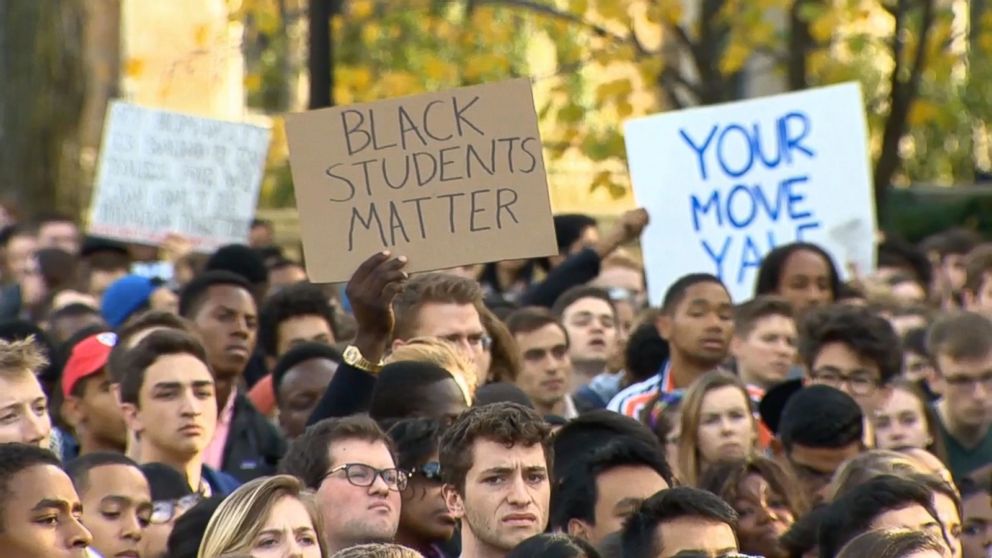Racism and the College Search
By Marie Lucca In Campus Life, Campus Tours, In the News, Selecting a CollegeAs high school students tour colleges this summer, they should notice the improvements that are taking place on US campuses in the wake of the Black Lives Matter movement. College students across the country have been challenging their schools’ historical connections to slavery, oppression and racism, and in many cases, have been winning small but important victories.
New England Universities
After more than 700 students and alumni signed a petition, Yale University, officials recently removed three portraits of John D. Calhoun, a leading secessionist and ardent defender of slavery, from an undergraduate dorm called Calhoun College. The name of the residence hall is also under reconsideration. Brown University faculty members endorsed a student suggestion to rename Columbus Day as Indigenous People’s Day on the school calendar, and Amherst College announced it would be dropping its “Lord Jeff” mascot and changing the name of the college-owned hotel The Lord Jeffrey Inn following student protests. British commander and school namesake Lord Jeffrey Amherst was an advocate of gifting Native Americans with smallpox-contaminated blankets to hasten their demise.
Harvard University is also making a number of changes to acknowledge its ties to slavery including changing the titles of the leaders of its undergraduate houses from “master” to “faculty dean” and retiring the shield of the Harvard Law School which is modeled on the coat of arms of the slaveholding Royall family whose fortune endowed Harvard’s first professorship of law. In addition, it installed a plaque last semester honoring 4 slaves who worked at Wadsworth House, the past home of Colonial-era university presidents.
Southern Universities
But the movements have not been limited to New England. After years of protests from students, The University of North Carolina agreed to rename Saunders Hall, a building dedicated to Ku Klux Klan leader Williams Saunders, and Duke University announced that it would rename Aycock Residence Hall which was dedicated to an early 20th century governor who ran a campaign of white supremacy resulting in Jim Crow laws and racial violence. Further, after a group of Black students confronted university officials, Washington and Lee University said it would remove Confederate flags from inside the campus chapel and stop holding classes on Martin Luther King Jr. Day.
Georgetown Faces Its Past
Perhaps the most unnerving history belongs to Georgetown University, a Catholic college that relied on slave-owning plantations in Maryland to help finance its operations. Often donated by prosperous parishioners, the enslaved African-Americans belonged to the nation’s most prominent priests. In 1838, 272 men, women and children were sold for about $3.3 million in today’s dollars to raise funds for the financial-strapped university. After student protests and a sit last year, the names of the two former college officials who orchestrated the sale were removed from buildings which were renamed Remembrance Hall and Freedom Hall. In addition, Georgetown set up a Working Group on Slavery, Memory and Reconciliation to make recommendations on how best to acknowledge and recognize the college’s ties to the institution of slavery.
What Prospective Students Need to Know
While these are all positive steps in the right direction, prospective students need to know that racism is still thriving on college campuses. A report by the National Center for Educational Statistics and the Bureau of Justice Statistics indicates race was the most common motivation for the 781 hate crimes reported on college campuses in 2013. Racist graffiti is regularly found on the walls of college buildings, and “ghetto-themed” parties, where students don blackface, baggy clothes, gold chains and fake baby bumps, are common at even the most progressive educational institutions. Further, Black students report that they are routinely harassed by campus police and are often mistaken by faculty and staff as custodians or “townies.”
So during your college search, be sure to ask each school what steps are they taking to address historic and current racism on their campus, and consider whether this is a place that you want to call home for the next 4 years.

